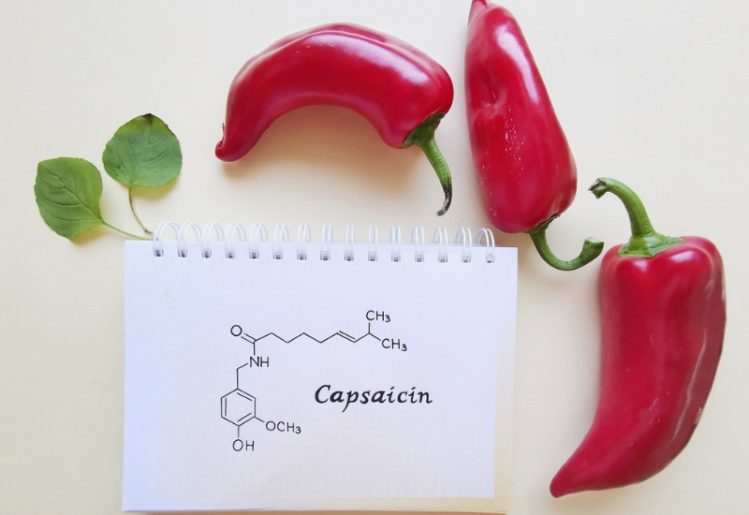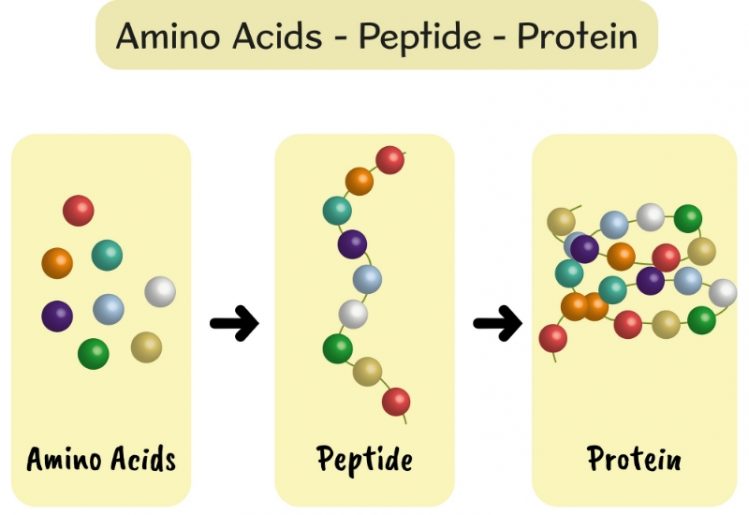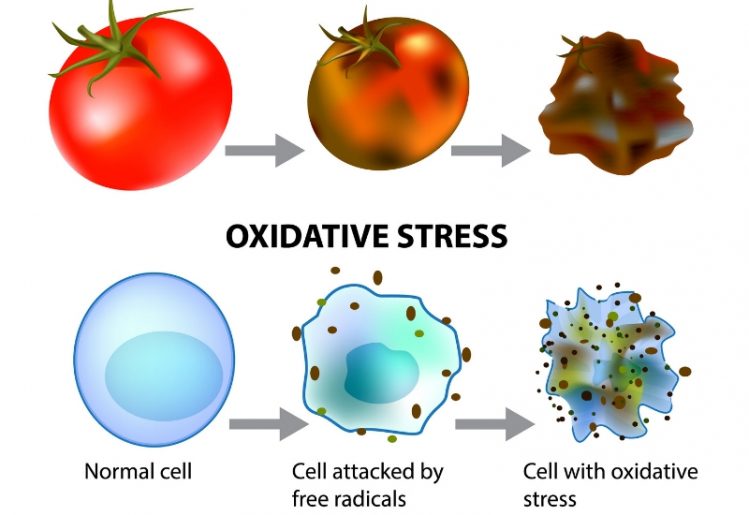There are two primary types of vitamins: those that dissolve in water and those that dissolve in fat. Fat-soluble vitamins, or those that don’t dissolve in water, should be taken along with some dietary fat in order to obtain the most benefits. After the supplement has dissolved, the vitamins contained within it are delivered to the liver and to fatty tissues throughout the body. These vitamins will be stored in these locations until the body needs them.
Here is everything you need to know about fat-soluble vitamins, so you can choose a vitamin supplement that will provide you with the best health benefits.
Which Vitamins are Fat-Soluble?
 There are four specific vitamins that are fat-soluble: vitamins A, D, E and K. Each one of these vitamins provides different health benefits and your body needs a daily supply of them to function properly. While these vitamins are found naturally in foods, it may be necessary to take a supplement to ensure you’re getting a sufficient supply of each vitamin. However, it’s equally important to not overdo it. Since these vitamins are stored in the liver, ingesting too much of any of these vitamins can lead to liver toxicity. This is why it’s important to check with your doctor before starting a new vitamin supplement if you have a medical condition or are taking prescription medication.
There are four specific vitamins that are fat-soluble: vitamins A, D, E and K. Each one of these vitamins provides different health benefits and your body needs a daily supply of them to function properly. While these vitamins are found naturally in foods, it may be necessary to take a supplement to ensure you’re getting a sufficient supply of each vitamin. However, it’s equally important to not overdo it. Since these vitamins are stored in the liver, ingesting too much of any of these vitamins can lead to liver toxicity. This is why it’s important to check with your doctor before starting a new vitamin supplement if you have a medical condition or are taking prescription medication.
If you want to add fat-soluble vitamins to your diet, they can each be found in a variety of foods. Vitamin A can be found in butter, animal liver and fish liver oil. Vitamin D is separated into two groups. D3 is found in animal fat, while D2 is common in many types of plants. For instance, mushrooms are a good source of vitamin D2. Vitamin E is found in almonds, hazelnuts, sunflower seeds and oil and wheat germ oil. Vitamin K can be found in kale, parsley, spinach, liver, egg yolk and butter.
How Do Fat-Soluble Vitamins Differ From Water-Soluble Vitamins?
While vitamins that are fat-soluble are stored in the body for later use, water-soluble vitamins are used immediately. As soon as the water in the body dissolves the vitamins, they are instantly distributed to the parts of the body that can use them. This means you’ll need to ingest a higher supply of these vitamins to ensure your body has a sufficient quantity of them when needed.
Another difference is that water-soluble vitamins don’t represent a danger to the liver. While fat-soluble vitamins are stored in the liver and fatty tissue, water-soluble vitamins are never stored. If you take more than the recommended daily allowance of a water-soluble vitamin, the body will expel the excess amount through the urine. This is why your urine may change color if you take too much of certain water-soluble vitamins. In some cases, taking too much of a water-soluble vitamin may also cause you to experience diarrhea.
There are more vitamins that are water-soluble than fat-soluble. Water-soluble vitamins are:
- vitamin B1 (thiamine)
- vitamin B2 (riboflavin)
- vitamin B3 (niacin)
- vitamin B6 (pyridoxine)
- folate (folic acid)
- vitamin B12 (cobalamin)
- biotin
- pantothenic acid
- vitamin C (ascorbic acid)
It should be noted that a healthy diet won’t cause you to overload on vitamins that are fat-soluble or water-soluble. This is something that only occurs when taking too much of a quality multivitamin. In addition to consulting your doctor before starting a new supplement, it’s important to read the label and follow the recommended dosages. This will ensure you won’t be taking more than your body needs.
The Benefits of Taking a High-Quality Multivitamin Supplement
 Taking a quality multivitamin that includes daily allowances for both fat-soluble and water-soluble vitamins can help you ensure you won’t suffer a vitamin deficiency. When taking a high-quality multivitamin you’ll be able to enjoy a broad range of health benefits. Some common benefits of the most crucial vitamins are listed below:
Taking a quality multivitamin that includes daily allowances for both fat-soluble and water-soluble vitamins can help you ensure you won’t suffer a vitamin deficiency. When taking a high-quality multivitamin you’ll be able to enjoy a broad range of health benefits. Some common benefits of the most crucial vitamins are listed below:
Vitamin A: The primary benefit of vitamin A is in promoting healthy vision, but it can also be effective in fighting acne and other skin disorders.
Vitamin D: This vitamin is essential to bone health, making it especially beneficial to those at a risk of developing osteoporosis. Vitamin D also helps keep the teeth strong and healthy.
Vitamin E: Recognized as an antioxidant, vitamin E can help fight off the free radicals that exist throughout the body. It also boosts heart health, skin health and blood circulation.
Vitamin K: A good supply of vitamin K will help blood clotting, so you won’t bleed too much from minor injuries. The blood clotting this vitamin helps to promote is also helpful in preventing excessive menstrual blood flow.
Vitamin B1: Promotes stronger energy levels and keeps the nervous system in good condition.
Vitamin B2: This is another vitamin that promotes healthy skin and vision.
Vitamin B3: Regulates the metabolism and improves digestion. It also helps promote good enzyme functioning.
Vitamin B6: Aids in the production of red blood cells, hemoglobin and insulin.
Folate: Helps protein metabolism, while also promotes the production of red blood cells.
Vitamin B12: In addition to regulating red blood cell production, this vitamin also helps keep the nervous system functioning properly.
Pantothenic Acid: Regulates hormone production and metabolism.
The body relies on a steady supply of vitamins, which is why eating a healthy diet is so important. The vitamin intake you receive from eating healthy foods can be supplemented by taking a quality multivitamin. Together, good food and a daily supplement will help you give your body the vitamins it needs to stay healthy and strong.
 A recent study sought to uncover how capsaicin relieves pain, particularly since this compound has become a common ingredient in many natural pain relievers. Researchers at Rutgers New Jersey Medical School found that capsaicin causes the nerves in the body to send out signals that block pain receptors. Since this process also works to calm the nerves, study author Tibor Rohacs believes capsaicin can also be used as an effective analgesic. It was found that these calming and pain-relieving effects were highly effective and very long-lasting, suggesting that capsaicin supplements and medications may be especially powerful in terms of treating pain and other conditions.
A recent study sought to uncover how capsaicin relieves pain, particularly since this compound has become a common ingredient in many natural pain relievers. Researchers at Rutgers New Jersey Medical School found that capsaicin causes the nerves in the body to send out signals that block pain receptors. Since this process also works to calm the nerves, study author Tibor Rohacs believes capsaicin can also be used as an effective analgesic. It was found that these calming and pain-relieving effects were highly effective and very long-lasting, suggesting that capsaicin supplements and medications may be especially powerful in terms of treating pain and other conditions. Finally, a study on how capsaicin affects longevity found that people who regularly consumed chili peppers were likely to live up to 18 years longer. The University of Vermont study evaluated the effects of consuming chili peppers on 16,000 subjects. They found that the food
Finally, a study on how capsaicin affects longevity found that people who regularly consumed chili peppers were likely to live up to 18 years longer. The University of Vermont study evaluated the effects of consuming chili peppers on 16,000 subjects. They found that the food  A
A  In previous research, scientists found that diallyl sulfide may affect the risk of developing other types of cancer. In an experiment conducted with mice, it was found that the
In previous research, scientists found that diallyl sulfide may affect the risk of developing other types of cancer. In an experiment conducted with mice, it was found that the  A recent research project used particles called peptides to identify how introducing certain molecules into the gut microbiome affected cholesterol levels in the body. Using mice that were fed high-fat diets and bred to develop arterial plaque, the team used peptides to alter the health of the gut microbiome and, in turn, improve cholesterol levels.
A recent research project used particles called peptides to identify how introducing certain molecules into the gut microbiome affected cholesterol levels in the body. Using mice that were fed high-fat diets and bred to develop arterial plaque, the team used peptides to alter the health of the gut microbiome and, in turn, improve cholesterol levels. There are two primary ways to ensure you’re introducing sufficient quantities of probiotics and prebiotics into your gut microbiome. Many
There are two primary ways to ensure you’re introducing sufficient quantities of probiotics and prebiotics into your gut microbiome. Many  There are many processes that contribute to physical aging, including genetic mutations, oxidative stress and inflammation. Throughout our lives, the cells in our bodies continuously divide and multiply. Since this is an ongoing process that occurs constantly, it stands to reason that deviations, or genetic mutations, will occur from time to time. A mutated cell can be rendered ineffective through senescence, or the death of the cell. However, if a mutated cell remains active, it can affect the surrounding tissue and speed up aging.
There are many processes that contribute to physical aging, including genetic mutations, oxidative stress and inflammation. Throughout our lives, the cells in our bodies continuously divide and multiply. Since this is an ongoing process that occurs constantly, it stands to reason that deviations, or genetic mutations, will occur from time to time. A mutated cell can be rendered ineffective through senescence, or the death of the cell. However, if a mutated cell remains active, it can affect the surrounding tissue and speed up aging. Similarly,
Similarly,  It is almost impossible to read the latest health news without learning about the benefits of omega-3 fatty acids. These oils, which are found naturally in fish, flaxseed and a variety of other sources, have been found in studies to have
It is almost impossible to read the latest health news without learning about the benefits of omega-3 fatty acids. These oils, which are found naturally in fish, flaxseed and a variety of other sources, have been found in studies to have  An omega-3 fatty acid supplement is not right for everyone; there are certain people who should talk to their doctor about whether this oily pill should have a permanent place in their medicine cabinet. If you do not regularly eat fatty fish or high omega-3 plant oils, you may want to consider taking a supplement. This essential fatty acid is simply too essential to completely do without.
An omega-3 fatty acid supplement is not right for everyone; there are certain people who should talk to their doctor about whether this oily pill should have a permanent place in their medicine cabinet. If you do not regularly eat fatty fish or high omega-3 plant oils, you may want to consider taking a supplement. This essential fatty acid is simply too essential to completely do without.